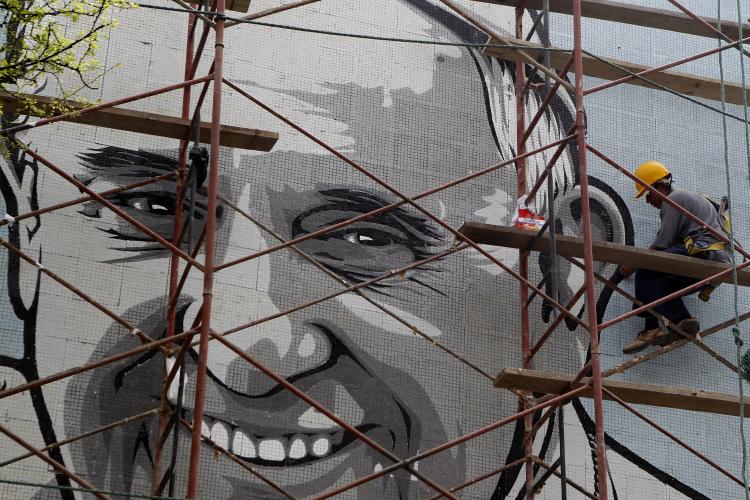-

-
Pope Francis’ Apostolic Journey to Colombia, which starts today, shines the light on a nation in which the Catholic Church has not only taken an active role in peace negotiations between the government and guerrilla groups, but also has made it its mission to accompany the countless innocents caught in the crossfire, affirming their dignity and fighting for their rights.
As the nation embarks on what analysts describe as a long road to reconciliation and reconstruction, Monsignor Hector Fabio Henao, director of Caritas Colombia and representative for the Colombian Bishops to the National Council for Peace, explained to Vatican Radio that throughout the 52-year armed conflict, the Colombian Bishops’ Conference has accompanied and cared for victims and is committed to be a fundamental actor in the process of reconciliation.
Monsignor Henao speaks of his own experience and work as a representative of the Bishops’ Conference in facilitating negotiations with all parties involved in the conflict of Colombia and of his efforts in 2003 that led to the release of a group of hostages held by ELN guerrillas, as well as of his contacts with different guerrillas encouraging them to enter into peace talks with the government.
“The Catholic Church itself in Colombia has been extremely committed to peace and reconciliation for many years; it is important to say that when nobody here in Colombia expected or believed in a peace process, the Bishops insisted they needed to have an accord, to have conversations to solve the internal conflict,” he says.
Mons. Henao notes that at the beginning of the peace process that resulted from 4 years of negotiations in Havana, most Colombians did not have enough information about the discussions on different points and that, he said, led to the rejection, by plebiscite, of the accord in October 2016.
That “no” vote made it very clear, he explained, that people were very polarized and needed to be informed and accompanied in a different way.
Following that hurdle in the process, Henao says “the Bishops released a very important document entitled ‘Artisans of Peace, Pardon and Reconciliation’ which encourages parishes and dioceses to work very hard on the issue of reconciliation and to try an build bridges within the various sectors of society.”
Henao says reconciliation will take time; in the meantime, more work must be done to recognize the rights of the victims.
Regarding the Pope’s visit at this special time in Colombia, Henao says it will be an opportunity for Francis to engage personally with the people and encourage them to go forward: “That’s why the logo chosen for the Apostolic Journey is ‘Let’s take the first step’”.
Henao also explains that one of the important reforms needed in order to pave the way to an inclusive and peaceful society is an agrarian reform because throughout the conflict those living in the rural areas have been the main victims – the countryside is where the fighting between the various factions took place, in which tens of thousands of people were killed or disappeared, and millions were forced from their homes and their lands.
“The peasants and the local communities have suffered too much, they have suffered massacres and have been internally displaced (…) so the third challenge in the country is to rebuild life in those areas” and give opportunities to the peasants to achieve livelihoods and dignity.
Mons. Henao also speaks of his expectations for the legacy of hope the Pope will leave and points out that the visit comes at an especially crucial and historic moment for Colombia as the country prepares for new presidential elections and while talks with ELN guerrillas proceed in Ecuador.
“It’s a moment when the people need to see that reconciliation is possible and that we can, with the support of everybody, we are able to build peace in our country.”
Monsignor Henao also notes that the Pope’s journey coincides with the Colombian “Week of Peace” which foresees a number of activities and celebrations and says that this year, of course, it is linked to the visit of the Holy Father “and that is very important”.
Source: Vatican Radio





